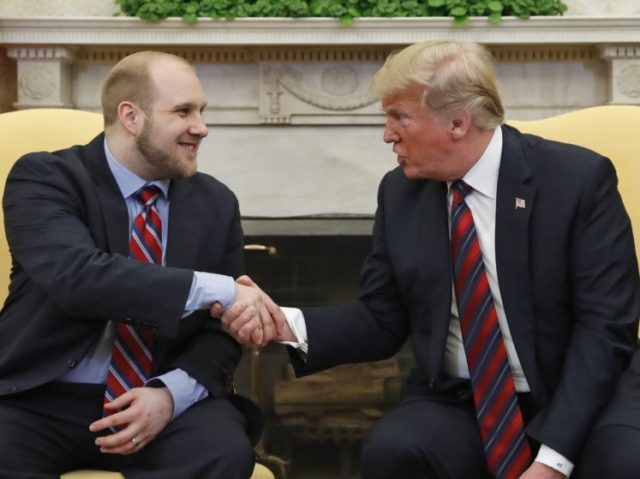“There are people in Maduro’s government that are willing to work with the United States to improve relations between the countries. There are people who really want to affect the relationship in a good way. They were very helpful to us.”
According to The New York Times, those were the impressions that Senator Bob Corker, Chairman of the Senate Foreign Relations Committee, conveyed to President Donald Trump after the release of Joshua Holt, an American citizen, and his wife, Thamy, unjustly detained in a Venezuelan prison for the last two years. The couple were falsely accused of spying on Venezuela on behalf of Washington and neither allotted a trial nor presented with evidence for the claims against them.
It is understandable that Senator Corker – as well as Senators Orrin Hatch and Dick Durbin, who reportedly participated in the negotiations to free the pair – would express satisfaction for the release of Joshua Holt. But, with all due respect, for the Chairman of the Senate Foreign Relations Committee to express laudatory comments about a narco-tyrannical regime than less than a week before Maduro expelled the U.S. charge d’ affairs and his deputy from Venezuela – and did so in a vulgar tirade addressed to the President of the United States – seems incomprehensible to me. That a United States Senator of his prominence dares to affirm that such a regime “is willing to work with the U.S. to improve relations between the countries” is simply flabbergasting.
The facts are that, regardless of his good efforts, as well as those of his colleagues Senators Hatch and Durbin, Maduro used Corker as a cover to liberate Holt in order not to appear that he was delivering him to President Trump, who has been the most forceful United States president in defense of our rights to recover our freedom.
Fear of President Trump’s commitment and decisiveness to help our people was the fundamental pivotal in the Holt case, and not what Senator Corker wrongly concluded, that “there are people who really want to affect the relationship in a good way” in the Venezuelan regime. It would be disingenuous to claim otherwise.
There is no doubt that Maduro was also hoping that the Republican Senator holding the position of Chairman of the Senate Foreign Relations Committee could help them to reverse or to stop more sanctions. Recall that, during Corker’s previous visit to Caracas in 2015, before the U.S. sanctions increased, Maduro shunned him after having promised a meeting with him. Obviously, Maduro did not need Senator Corker then.
Regardless of his comments to The New York Times, it is reassuring that, simultaneously the White House Press Secretary declared:
The release of Joshua Holt does not change United States policy, and will continue to use all available tools and options to pressure the Maduro regime to abide by democratic norms, and will continue to build a broad international coalition of like-minded partners who want to see the return of democracy to the people of Venezuela.
Senator Marco Rubio, also a very strong ally of the Venezuelan democrats, perhaps to eliminate misconceptions about Corker’s comments tweeted, “Any U.S. Senator can meet with whoever they want but no matter how many senators dictator @NicolasMaduro gets to meet with him, U.S. sanctions will go away when Maduro leaves & democracy returns.”
It would be valuable if the Chairman of the Foreign Affairs Committee followed the example set by President Donald Trump, as well as that of Senators Marco Rubio, Bob Menendez, Bill Nelson, and Ben Cardin, as well as Congresswoman Ileana Ros-Lehtinen, and join them in support of the cause of freedom and democracy in my country.
The ones who truly want to restore our historical relationship with the United States are we, the Venezuelan democrats, not the regime that has morphed into a narco-militarized state colonized by Cuba, and which represents a real threat to the whole continent.
Diego Arria has served as former Ambassador of Venezuela to the United Nations, former President of the UN Security Council, and former Governor of Caracas.

COMMENTS
Please let us know if you're having issues with commenting.